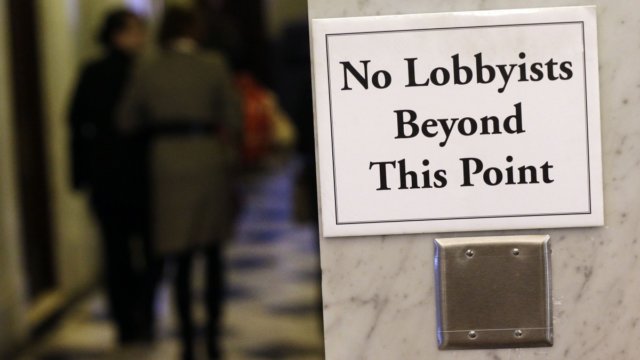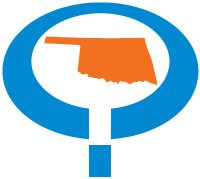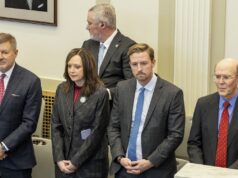
(Editor’s note: This story was authored by Trevor Brown of Oklahoma Watch and appears here in accordance with the non-profit journalism organization’s republishing terms.)
On the eve of the final day of this year’s legislative session, Robert Johnson, a legislator-turned-lobbyist, paid $744 to treat six Democratic lawmakers to a meal and beverages.
That same day, Richard Phillips, also a former legislator-turned-lobbyist, picked up a $338 restaurant tab for a group of 11 Republicans.
Both lobbyists list tobacco companies among their nine clients.
But because of an Oklahoma Ethics Commission rule passed three years ago, the public can only guess if the purpose of those dinners was to discuss the controversial cigarette-fee increase up for vote the next day.
An Oklahoma Watch review of thousands of gifts and meal purchases made during the first six months of 2017 found it’s impossible to confirm through records who was bankrolling efforts to influence policymakers for a quarter of the record-setting $485,000 that lobbyists spent on state officials and legislators.
That’s because Oklahoma, unlike dozens of other states, doesn’t require lobbyists to reveal what bill or topic they are discussing when they buy a meal for a state official. Lobbyists also don’t have to list what client they are representing when they buy a meal or a gift. Dinners can total a few hundred dollars per recipient, and gifts can include anything from a $20 lapel pin to a $173 bouquet of flowers to $190 Oklahoma City Thunder tickets.
(Legislators who live more than 50 miles from the State Capitol receive payments of $156 per day for lodging and meals during the legislative session.)
State ethics officials and lobbyists say this rule change has helped incentivize lobbyists to fully disclose their spending by making the reporting process easier.
But open-government advocates and some state lawmakers from both major parties say the rule change has watered down disclosure requirements to the point where the public is often left in the dark about which special interests are trying to influence public policy through personalized access and whether conflicts of interest exist.
“Lobbying disclosure helps the public, journalists and legislators understand who is spending money to try to influence public policy,” said John Wonderlich, executive director of the Sunlight Foundation, a nonprofit group that promotes government transparency. “Since our policies are decided through public discussion, it’s pretty important to understand if someone is trying to manipulate that discussion.”
Gaps in Disclosure
Ethics Commission reports show lobbyists purchased about 6,500 meals or gifts for lawmakers from January to the end of June – the reporting period that covers the bulk of lobbying activity since it includes the four-month legislative session.
State rules only require lobbyists who spend money on individuals to list the date, amount and recipient. The Ethics Commission also caps how much a lobbyist can spend, regardless of how many clients they have, at $500 per lawmaker or state official per client. The cap applies to individual lobbyists, not to the firms that employ them.
For lobbyists who represent just one company or organization, it’s often clear who is behind the meal, drink or gift.
But it’s a different story for the more than 80 lobbyists who have multiple clients.
In those cases, the state doesn’t require a lobbyist to list which of his or her clients are being represented when the lobbyist sponsors a meal or event to which all lawmakers or an entire caucus or committee are invited.
The public can only speculate on what company or special-interest group is ultimately paying the lobbyist who purchases the gift or meal.
For example, in the case of the six Democrats who were wined and dined on the second-to-last day of the session, May 25, the public would only see that the lobbyist who paid for those meals, Robert Johnson, had four clients. Those include tobacco giant Reynolds American, the Oklahoma Association of Electric Cooperatives, the Alliance for Responsible Consumer Legal Funding and the Oklahoma Petroleum Marketers and Convenience Stores Association.
It could have been any, or more than one, of Richard Phillips’ five clients – the Oklahoma Retail Cigar Association, Oklahoma Association of Community Action Agencies, Oklahoma Association of Realtors, Oklahoma Educational Television Authority Foundation or Notarize Inc. – behind his dinner with the 11 Republicans.
Oklahoma Watch attempted to reach six legislators who attended the meals, and two responded, saying they couldn’t recall what was discussed. The others did not respond. The two lobbyists did not return calls seeking comment.
It’s even more difficult to uncover the original source of the lobbying funds with lobbyists who list dozens of clients.
Six lobbyists with the firm FKG Consulting, for instance, each list more than 44 clients.
These lobbyists, the disclosure reports show, spent more than $10,000 during the first six months of this year. Much of that money was spent on meals, ranging from $1.36 to $130 per person per occasion. It’s impossible to know from disclosure reports whether the money was spent on behalf of private-prison operator CoreCivic, Chesapeake Energy, the Institute for Responsible Alcohol Policy or one of FKG’s other 40 clients.
Even when a lobbyist represents only one client, the potential beneficiaries may be unclear. A broad-based association such as a chamber of commerce might lobby for a change in law that largely benefits one industry, but that won’t be evident in the lobbyist’s disclosure report.
Relatively Lenient Rules
Wonderlich, of the Sunlight Foundation, said reporting rules as lenient as Oklahoma’s are unusual. A 2015 study by his group found that Oklahoma is one of 11 states that doesn’t require lobbyists to report at least the general subject of the lobbying activity.
Fifteen states require lobbyists to take the extra step of listing what bill or action they discussed, and seven of those states require lobbyists to disclose what position they are taking on the topic.
“What we’ve seen is lobbyists and lobbying firms will live up to the minimum standards of the law,” Wonderlich said. “So the question is, are the minimum standards as set by the law enough to give the public and lawmakers an appreciation for just how strongly moneyed interests are trying to influence legislation?”
Sen. Rob Standridge, (R-Norman), is among the lawmakers who say the standards are too lenient.
He filed legislation this year to require lobbyists to list the subject area or legislation that was discussed when a meal or gift is purchased. But that legislation, similar to eight other bills introduced in the past three years to limit lobbyist spending or increase disclosure, failed to make it out of committee.
Standridge said he believes lobbying plays an important role in educating lawmakers on a range of issues. But he said requiring lobbyists to reveal their intentions would help avoid at least the perception that they unduly influence the legislative process.
“We see, for example, that a lot of out-of-state businesses or interests do a lot of the lobbying during the session,” he said. “And while there’s nothing wrong with that, at the end of the day requiring more transparency could convince legislators to do what’s best for Oklahomans and Oklahoma businesses.”
Rep. David Perryman, (D-Chickasha), has also unsuccessfully tried to pass legislation to require greater disclosure of lobbyist spending and said he backs Standridge’s proposal.
“The amount spent is what usually gets all the attention,” he said. “But if a lobbyist is basically buying access to lawmaker, why shouldn’t the public know what they talking about?”
As a member of the GOP leadership in the Senate, Standridge said he was “baffled” that his bill didn’t even get a committee hearing.
“I think it’s a no-brainer,” he said. “Maybe some lawmaker won’t want the change or it could upset some lobbyists, but I guess there just isn’t the political demand for it.”
Disclosure vs. Compliance
The Ethics Commission’s revision of lobbyist disclosure rules in 2014 came partly in response to complaints from lobbyists.
Jo Pettigrew, who ended her five-year term as the commission’s chairwoman last month, said lobbyists routinely said that the state’s requirements were too onerous. As a result, she said, the commission believed a large amount of lobbying was going unreported.
That prompted the commission to adopt a series of changes that included removing the requirement that lobbyists list the specific client for each gift or meal purchase.
“I just felt we thought it wasn’t that necessary,” Pettigrew said. “And it’s difficult for lobbyists to comply with this consistently because you start out talking to a lawmaker about an issue and then another one comes up.”
In 2015, the first year after the rule changes went into effect, reported lobbyist spending from January to June more than doubled, from about $155,000 in 2014 to $325,800 in 2015. Since then, it has risen to this year’s January-to-June total of $485,175.
One possible reason for the increase a rule change that upped the amount lobbyists could spend on individual lawmakers or state officials to $500. Previously, lobbyists could spend $100 per individual, but that amount could be multiplied by the number of clients they represented.
But Pettigrew said she suspects the easier-to-follow rules caused many lobbyists to disclose spending that they previously wouldn’t have reported.
Jim Dunlap, a lobbyist with the firm Majority Plus, agreed.
“I think there is a lot out there that’s now being reported,” he said. “I don’t think more is being spent. It’s just the Ethics Commission has made it a lot more easy to comply.”
Dunlap, a former lawmaker, represents a diverse group of clients that include energy companies, a firm that sells hearing aids to seniors and a gun-control group.
He said during a given dinner with a lawmaker or group of lawmakers, he might discuss four or five different bills being pushed by several of his clients.
“Then what are you going to do?” he said. “Are you going to have to break it out and say (I spent) $15 for this, $15 for this and $12 for that?”
Since it’s a hard task for the state to monitor lobbyists who don’t fully disclose their spending or people who don’t even bother registering as a lobbyist, he argued it’s a better strategy to focus on compliance and make sure lobbyists don’t exceed their spending caps.
“Because those who don’t register can do what they want,” he said. “They don’t have to report – or I should say they don’t report – and there’s no real enforcement for those doing that.”
Pettigrew said the state lobbying rules remain a work in progress. For now, she said, the Ethics Commission has been focused on studying the spending limits and enacting new restrictions on when lobbyists can buy lawmakers or state officials non-meal gifts.
“But if the public really felt they really needed it, hey, bring it to the commission,” she said. “If the public thinks it would help them, that is the kind of input the commission wants to hear.”






















